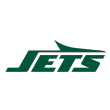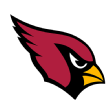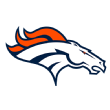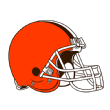The sweepstakes to sign top free agent Kirk Cousins is down to four teams, and we're days away from finding out his decision. What could the quarterback's contract with the Vikings, Jets, Cardinals or Broncos look like? And what happens next for the teams that miss out on Cousins?
We asked NFL Nation reporters to make their best offer -- on behalf of the teams they cover -- to Cousins, updating the terms and value from the exercise we performed late last month. We wanted specifics and perspective, so the offers below are based on what each reporter believes their team's front office will do, and how said team views free agents and quarterbacks.
We're also including potential fallback plans, draft needs and prospect fits (with some help from ESPN NFL draft experts Mel Kiper Jr. and Todd McShay) for each team, including the Browns and Bills, who are out of the Cousins sweepstakes but are still likely to draft a quarterback on Day 1.
ESPN NFL Insider Mike Sando is back to take on the role of Cousins' agent and pick the best offer for his client -- he picked the Jaguars' offer last time, but Jacksonville is now out of the race. Go here to see which offer he picked this time.
Go to each offer:
Vikings | Jets | Cardinals | Broncos
Go to other QB-needy teams:
Browns | Bills


Minnesota Vikings' offer
Total years and value: Five for $142 million (team option after Year 3)
Average per year: $28.4 million
Full guarantee at signing: $70 million
Total guarantee: $87 million
Three-year payout: $45 million after Year 1, $60 million after Year 2, $87 million after Year 3.
So, the word is Cousins wants a short-term deal, with all guaranteed money, and the chance to potentially hit free agency again in three to four years. It could be the first fully guaranteed multiyear contract in NFL history.
If Minnesota wants to land Cousins, it will have to make him the highest-paid quarterback in NFL history. But that doesn't mean the Vikings have to tip their hand entirely in his favor. There's no benefit for the Vikings to give him a three-year contract of all guaranteed money and the option for Cousins to hit the market as a free agent again when he's 32. In order for this to work, the Vikings need some protection on the back end of this deal.
The easiest way to do this is to give Cousins a boatload of cash up front and guarantee the money at the front of the contract. Of all Cousins' suitors, Minnesota can argue it puts the quarterback in the best spot to win now and with a Super Bowl window that extends for two to three years. The Vikings might have to guarantee a lot to land Cousins, but they wouldn't have to guarantee anything in the final two years of his contract -- something the Jets, Broncos and Cardinals wouldn't be able to avoid. The best deal here would be a five-year contract with the first three years guaranteed. If things go well during the early years of Cousins' tenure, Minnesota can decide to hang onto him for the final two years of his deal.
With $54 million in cap space in 2018 and that number expected to climb if they can restructure deals for Latavius Murray, Brian Robison and Jarius Wright, the Vikings can still keep Cousins at around 10 to 11 percent of the total cap in those early years. An important caveat would be extending the contracts of Anthony Barr and Eric Kendricks this offseason, taking care of Danielle Hunter and Stefon Diggs, and picking up Trae Waynes' fifth-year option ahead of free agency next year.
Mike Zimmer cautioned that the Vikings shouldn't "go crazy" when signing a quarterback in free agency. It might appear that they're not heeding that advice on the front end of Cousins' deal, but after the guaranteed money is paid out, Cousins' concession to the Vikings for all the guarantees would be those final two years of his contract where Minnesota has the upper hand. -- Courtney Cronin, ESPN Vikings reporter
What if the Vikings can't get Cousins? They have contingency plans. The first of those plans centers on their three free-agent quarterbacks: Case Keenum, Sam Bradford and Teddy Bridgewater. Even with more than $54 million in cap space, I'm not certain the Vikings will want to make a long-term investment in Keenum for upward of $20 million. I'd expect the Broncos or Cardinals to start a bidding war over Keenum while the Vikings use what they know about Bridgewater and Bradford's knees to determine whom they sign. I doubt they'll be able to re-sign both, but Bradford might be the most reasonable option financially -- if he can stay healthy. Bridgewater hasn't scratched the surface of how good the Vikings expect him to be, which might indicate Minnesota would rather test out his ability than let him walk in free agency. -- Cronin
How likely are the Vikings to draft a QB? 55 percent. It all depends on whom they sign in free agency. Going after someone such as Lamar Jackson at No. 30 overall could solve their long-term issue. Minnesota could sign Bridgewater or Bradford to a short-term deal and bring in a rookie to fill out the quarterback room along with Kyle Sloter. The Vikings know depth at this position is important, so drafting a QB for the sake of having options if Bridgewater or Bradford doesn't pan out should be a priority. -- Cronin
Top draft needs: Outside of a starting quarterback (which should be solved in free agency), this isn't a roster with many holes. Riley Reiff stepped in and solved the left tackle issue, but right tackle (or guard) is an area to address. Drafting one would allow Minnesota to move Mike Remmers inside. Defensive tackle is another area of potential need, with Sharrif Floyd potentially out of football and Tom Johnson and Shamar Stephen about to hit free agency. -- McShay
Best prospect fits: Ohio State guard/center Billy Price, UTEP guard Will Hernandez and Texas guard/tackle Connor Williams could fit along the offensive line for Minnesota, which picks near the end of the first round. If the Vikings target a defensive tackle, Florida's Taven Bryan would work -- if he lasts to Minnesota's pick.-- McShay

New York Jets' offer
Total years and value: Five for $150 million
Average per year: $30 million
Full guarantee at signing: $72 million
Total guarantee: $90 million
Three-year payout: $52 million after Year 1, $72 million after Year 2, $90 million after Year 3.
This contract would set new benchmarks for average per year, full guarantee at signing and three-year payout. The Jets, cognizant that it probably will take more than money to lure Cousins, will try to sell their vision for building a championship team.
They have a war chest of salary-cap room for 2018 and 2019, which will allow them to be aggressive in free agency. It also means they won't have to dump salary; they can keep building what they started last year. They have five of the first 107 picks in the upcoming draft; they haven't had that many since 2006. They have a bright offensive coordinator/quarterbacks coach in Jeremy Bates, whose mentor was Cousins' first NFL coach -- Mike Shanahan. It means they speak the same language and see the game the same way.
The Jets also can play the family card. The area surrounding the team's facility is a nice place to raise kids, with good schools. Don't think the Jets won't try to sell that. When they were recruiting LaDainian Tomlinson in 2010, they sent a baby basket to Tomlinson's pregnant wife. That, he said, clinched the deal. Coincidentally, the other team bidding for Tomlinson was the Vikings, believed to be the favorite for Cousins.
Lastly, the Jets can emphasize solidarity within the organization. General manager Mike Maccagnan and coach Todd Bowles, both of whom received two-year contract extensions after the season, are philosophically aligned. That should appeal to Cousins, who is coming from a dysfunctional organization. -- Rich Cimini, ESPN Jets reporter
What if the Jets can't get Cousins? They will have $90 million in cap room to address the quarterback position and other needs. At quarterback, they would look to double down with two veterans who would compete for the job. Two of their targets are Josh McCown and Teddy Bridgewater. They're both short-term solutions, although Bridgewater has long-term upside if he can rebound from his devastating knee injury. Others on their radar are running back Dion Lewis, center Weston Richburg and cornerback Malcolm Butler. -- Cimini
How likely are the Jets to draft a QB? 99.9 percent. With the sixth pick, the Jets probably would be in position to draft one of the top four quarterbacks. They also could look to trade up. If they miss out on Cousins and the top four prospects, it'll be a bitter defeat for this Jets regime. -- Cimini
Top draft needs: The Jets have one of the worst top-to-bottom rosters in the NFL, with needs all over on both sides of the ball. If they land Cousins and don't pick a quarterback at No. 6 overall, they should take the best player on the board. Cornerback, pass-rusher and offensive line -- yes, the entire O-line -- are their biggest needs. -- Kiper
Best prospect fits: Versatile Alabama cornerback Minkah Fitzpatrick would be a great fit as New York's No. 1 cornerback, as the Jets took safeties with their top two picks in 2017. But if NC State's Bradley Chubb, the best edge rusher in this class, makes it to No. 6, Maccagnan & Co. should run to the podium to make the pick. If the Jets land Cousins and want to help protect him with pick No. 6, Notre Dame guard Quenton Nelson is the draft's best offensive lineman. -- Kiper

Arizona Cardinals' offer
Total years and value: Five for $140 million
Average per year: $28 million
Full guarantee at signing: $101 million
Total guarantee: $125 million
Three-year payout: $45 million after Year 1, $68 million after Year 2, $91 million after Year 3.
The Cardinals are shooting for the moon -- and the future -- with their historic offer to make Cousins the NFL's highest-paid quarterback while working around their salary-cap limitations. With the Cardinals' cap number around $22 million for 2018, Arizona will have to back-load its offer while still trying to entice Cousins to sign.
Arizona's five-year offer worth $140 million with $101 million fully guaranteed at signing shows a long-term commitment to Cousins.
To make their intentions clear, the Cardinals would give Cousins a $5 million base salary with a $35 million signing bonus and a $5 million roster bonus, all of which is guaranteed at signing. That way, Cousins will get $45 million lump sum immediately.
The rest of Cousins' contract is worth $95 million, including $56 million guaranteed. And because the Cardinals have plenty of cap space to work with starting in 2019, they can afford to make Cousins' cap number more than $30 million in three of the next four seasons. -- Josh Weinfuss, ESPN Cardinals reporter
What if the Cardinals can't get Cousins? They will most likely go after another quarterback, possibly one who could be their next starter, in free agency while trying to also find a veteran cornerback who could start opposite of Patrick Peterson and a wide receiver who can fill a void as their No. 2 behind Larry Fitzgerald. -- Weinfuss
How likely are the Cardinals to draft a QB? 90 percent. The draft's quarterback class is deep enough to give the Cardinals options at No. 15 or make it enticing enough to move up into the top of the first round. If they can't land their top option, they'll likely draft a quarterback in the second or third round. If they don't draft one, it's because they're happy with whomever they signed in free agency and think he is the long-term answer. -- Weinfuss
Top draft needs: If the Cardinals miss out on Cousins (and can't pull off a trade for Nick Foles), they should look for an affordable veteran such as Sam Bradford or AJ McCarron. Even if they sign one, don't be surprised if Arizona makes a jump up from No. 15 like Houston or Kansas City did last year to grab a QB in Round 1. Arizona needs a starting cornerback, help along the offensive line and another starting wide receiver opposite Fitzgerald, as both Jaron Brown and John Brown are free agents. -- McShay
Best prospect fits: Arizona would love to get Wyoming's Josh Allen, but will have to give up some draft capital to get there. If the Cardinals can't trade up and the top four QBs (Sam Darnold, Baker Mayfield, Allen, Josh Rosen) are off the board, Arizona probably will look at a corner. The top two cornerbacks (Alabama's Minkah Fitzpatrick and Ohio State's Denzel Ward) will be gone by No. 15, but UCF's Mike Hughes, Iowa's Josh Jackson or Colorado's Isaiah Oliver would be potential fits. -- McShay

Denver Broncos' offer
Total years and value: Four for $120 million
Average per year: $30 million
Full guarantee at signing: $75 million
Total guarantee: $97 million
Three-year payout: $56 million after Year 1, $72 million after Year 2, $92 million after Year 3.
The Broncos could do a three-year deal to make it more enticing for Cousins, who would then find himself back in the open market for another enormous payday if things go as well as he and the Broncos think they would. But a four-year deal does much the same thing, and the Broncos would have one more year to prorate some of the cap charges in the deal. The Broncos kept wide receivers Emmanuel Sanders and Demaryius Thomas on the roster -- there were rumblings that both could be salary-cap casualties -- as part of the presentation. Much like John Elway promised Peyton Manning the Broncos would do whatever was necessary to put a Super Bowl team around him -- the Broncos went twice and won one in Manning's four-year tenure -- Elway can show Cousins he's the only one of the suitors to have made that kind of promise to a quarterback and kept it. -- Jeff Legwold, ESPN Broncos reporter
What if the Broncos can't get Cousins? The Broncos will take a long look at Case Keenum as a potential multiyear solution or a veteran like Josh McCown as a bridge quarterback to mentor a prospect. The Broncos have about $25 million in cap space, with the ability to create $15.5 million more once Aqib Talib's trade to the Rams becomes official and by releasing running back C.J. Anderson. -- Legwold
How likely are the Broncos to draft a QB? 90 percent. If they sign a player like Keenum that might drop the percentage a bit, but no Cousins would mean the Broncos would be poised to find their long-term prospect at No. 5 overall. -- Legwold
Top draft needs: I keep hearing Denver is likely to get its starting quarterback in free agency, which means it can focus on other needs at pick No. 5. Denver's offensive line has several areas of need, especially at guard and right tackle. The Broncos also could look at another cornerback after dealing Talib. -- McShay
Best prospect fits: If Denver doesn't sign Keenum or another veteran in free agency, grabbing Wyoming's Josh Allen at No. 5 (or moving up a couple spots to get him) makes a lot of sense. General manager John Elway personally scouted Allen at the Senior Bowl and at the Cowboys' bowl game. Mayfield could be another option; his leadership and energy would be tough to pass up. Notre Dame's Quenton Nelson is the top offensive lineman in the draft and would be a significant upgrade at guard. Fitzpatrick also would make a lot of sense. -- McShay
Which offer should Cousins take?
My client has consistently sought a fair deal with a team maximizing his chances for winning. That was the primary criteria when Jacksonville was the choice last time. It is the primary criteria behind the selection of Denver this time around.
The Denver offer carries the largest payout through the first year and the largest through three seasons, while matching the Jets' offer for the highest annual average ($30 million). It also returns Cousins to the market after only four seasons instead of five, giving him an earlier shot at yet another big payday. Denver is also a place where my client can provide the clear difference between a losing season and a winning one, as outlined in this recent analysis.
The bar is set much higher in Minnesota, where my client could play very well and still fall short of the Vikings' 13-3 record from last season. The other situations (Jets, Cardinals) feel a little less settled from a roster standpoint. Denver, it is. -- ESPN NFL Insider Mike Sando, playing the part of Cousins' agent

Fallback plans for other QB-needy teams

Cleveland Browns
What's next after moving on from Cousins: The acquisition of Tyrod Taylor and his $16 million in salary cap commitment takes the Browns out of the running for Cousins and AJ McCarron. The Browns will not pay Cousins the $25 million to $30 million it will take to sign him in addition to paying Taylor. They might turn to another lower-priced veteran for depth -- perhaps Josh McCown -- but they won't be paying top dollar for another free-agent quarterback. Taylor is the Browns' starter heading into 2018. -- Pat McManamon, ESPN Browns reporter
How likely are the Browns to draft a QB? 100 percent. There is no doubt about this decision now: The Browns will draft a quarterback, and it's likely they draft him first overall. Taylor appears to be a one-year placeholder while the young quarterback learns. His play and the success he brings the team could change that, but it's likely Taylor will be playing to win games and his next contract, with the drafted quarterback taking over in 2019. Cleveland has the Nos. 1 and 4 picks in the first round, along with three second-round picks. -- McManamon
Top draft needs: As Pat said, I still expect the Browns to take a quarterback at the top of Round 1, and I expect this to be an offense-heavy draft for Cleveland. Top running back Isaiah Crowell is a free agent, so the Browns should replace him in the first or second round. They need weapons for their new quarterbacks, even after acquiring wideout Jarvis Landry. Cornerback is a position to watch on defense. -- Kiper
Best prospect fits: My top-ranked quarterback is Wyoming's Josh Allen, but that doesn't mean he's No. 1 on general manager John Dorsey's board. There's still a lot of time for the Browns to continue their evaluations, and Allen's pro day is March 23. Penn State's Saquon Barkley is the best back in this class, and he's the No. 1 prospect on my Big Board. He's a game-changer who can help out a young quarterback. Alabama's Minkah Fitzpatrick and Ohio State's Denzel Ward are the best defensive backs in a deep class. -- Kiper

Buffalo Bills
What's next after moving on from Cousins: Signing Cousins has not been a realistic option for the Bills, who will have about $32 million in cap space in 2018 once their trade of Tyrod Taylor becomes official later this week. They are more likely to find their quarterback of the future in the draft. Signing a short-term starter in free agency is also possible. -- Mike Rodak, ESPN Bills reporter
How likely are the Bills to draft a QB? 95 percent. General manager Brandon Beane was not shy in saying he and his scouts were placing a large emphasis on quarterback during the combine, and even the biggest names of the draft are not out of the question for Buffalo. For example, Beane met UCLA's Josh Rosen at the combine but also anticipates making a trip to California to see him and hosting him in Buffalo. The Bills could trade up for a quarterback, using their stash of draft selections that includes two picks in each of the first three rounds. Or, they could select one at their original spots in the first round (Nos. 12 -- after a trade on Monday -- and 22). The shocking move would be if they did not pick one at all, especially after trading Taylor. -- Rodak
Top draft needs: If Buffalo stays at picks 12 and 22, I expect at least three quarterbacks to be off the board. That means the Bills might need to move to their other needs, which include center (Eric Wood suffered a career-ending neck injury last season), cornerback (2017 first-round Tre'Davious White was great, but they need someone on the other side) and defensive tackle (starter Kyle Williams will be 35 when the 2018 season begins). -- Kiper
Best prospect fits: This is a deep cornerback class, and UCF's Mike Hughes, Iowa's Josh Jackson, LSU's Donte Jackson and Louisville's Jaire Alexander could all be on the board at pick No. 21. My top-ranked center is Iowa's James Daniels. Michigan's Maurice Hurst is the best 4-3 defensive tackle in this class, but he was diagnosed with a heart condition at the NFL combine and needs to be checked out more by teams. Florida's Taven Bryan also could be in play. -- Kiper
